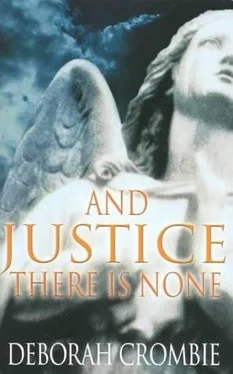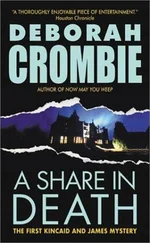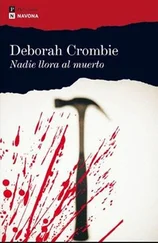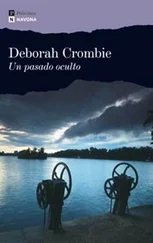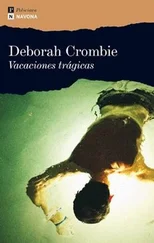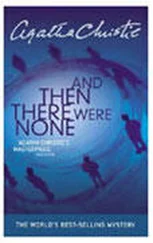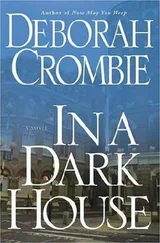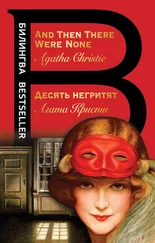
Deborah Crombie
And Justice There Is None
The eighth book in the Duncan Kincaid / Gemma James series, 2002
MILLENNIUM
"The sun no longer shows
His face; and treason sows
His secret seeds that no man can detect;
Fathers by their children are undone;
The brother would the brother cheat;
And the cowled monk is a deceit…
Might is right, and justice there is none."
– Walther von der Vogelweide
c. 1170-1230
Many thanks are due, as always, to the Every Other Tuesday Night Writer's Group: Steve Copling, Dale Denton, Jim Evans, Diane Sullivan Hale, John Hardie, Viqui Litman, Rickey Thornton, and Milan Vesely, with added appreciation to Diane Sullivan Hale, RN, BSN, for her advice on medical matters. Thanks as well to Carol Chase and Marcia Talley for their inspiration and input; to Connie Munro for her astute copy edit; to Glen Edelstein for the book design; to Jamie Warren Youll for the jacket design; to Kate Miciak, my editor at Bantam, for simply being the best; and to Nancy Yost, my agent, for her long-standing patience and support.
Admiral Sir Edward Vernon, with a small fleet of ships from the British Navy, captured the port [of Porto Bello] in 1739… Bonfires were lit in all the major cities to celebrate the victory… streets and districts were named after Vernon and Portobello.
– Whetlor and Bartlett,
from Portobello
He ran, as so many others ran, the black anorak protecting him from the mist, the reflective patches on his trainers gleaming as he passed under the street lamps. The pattern of the streets was etched in his mind, a living map. Down Portobello, under the motorway, past Oxford Gardens, once the site of Portobello Farm, then back up Ladbroke Grove, past the video shop and the Afro-Caribbean hairdressers, then into Lansdown Road with its whitewashed Victorian austerity. He imagined that the street's curve paralleled the track of the old racecourse that had crowned Notting Hill a hundred and fifty years ago; that his feet fell where the horses' hooves had struck.
Now, Christmas lights twinkled in front gardens, promising a cheerful comfort he could not share. Other joggers passed him. He acknowledged them with a nod, a raised hand, but he knew there was no real kinship. They thought of their heart rates, of their dinners and their shopping, of home and children and the demands of the holiday on their bank accounts.
He ran, as the others ran, but his mind revolved in a rat's wheel of old things, dark things, sores that did not heal. Nor would they, he knew, unless he took the cleansing upon himself: There would be no justice unless he made it.
There, the spire of St. John's Church, rising disembodied above the mist-wreathed rooftops. The blood roared in his veins as he neared his destination; his breath came hard with the terror of it. But he could not turn away. All his life he had been moving towards this place, this night; this was who and what he was.
A woman with long, dark hair passed by him, her face in shadow. His heart quickened as it always did; it might have been his mother as he saw her in his dreams. Sometimes in his visions her hair twined round him, silken and cool, an elusive comfort. Every night he had brushed it with a silver-backed brush, and she had told him stories. Until she had been taken from him.
He ran, as the others ran, but he carried with him something they did not. History, and hatred, honed to a bright and blazing point.
***
Portobello took on a different character once the shops closed for the day, Alex Dunn decided as he turned into the road from the mews where he had his small flat. He paused for a moment, debating whether to go up the road to the Calzone's at Notting Hill Gate for a celebratory pizza, but it wasn't the sort of place one really wanted to go on one's own. Instead, he turned to the right, down the hill, passing the shop fronts barred for the night and the closed gates of the café run by St. Peter's Church. Bits of refuse littered the street from the day's traffic, giving it a desolate air.
But tomorrow it would be different; by daybreak the stallholders would be set up for Saturday market, and in the arcades, dealers would sell everything from antique silver to Beatles memorabilia. Alex loved the early-morning anticipation, the smell of coffee and cigarettes in the arcade cafés, the sense that this might be the day to make the sale of a lifetime. As he might, he thought with a surge of excitement, because today he'd made the buy of his lifetime.
His step quickened as he turned into Elgin Crescent and saw the familiar façade of Otto's Café- at least that was how the regulars referred to the place; the faded sign read merely Café . Otto did a bustling daytime business in coffee, sandwiches, and pastries, but in the evening he provided simple meals much favored by the neighborhood residents.
Once inside, Alex brushed the moisture from his jacket and took a seat in the back at his favorite table- favored because he liked the nearness of the gas fire. Unfortunately, the café's furniture had not been designed to suit anyone over five feet tall. Surprising, really, when you looked at Otto, a giant of a man. Did he never sit in his own chairs? Alex couldn't recall ever seeing him do so; Otto always seemed to hover, as he did now, wiping his brow with the hem of his apron, his bald head gleaming even in the dim light.
"Sit down, Otto, please," Alex said, testing his hypothesis. "Take a break."
Otto glanced towards Wesley, his second-in-command, serving the customers who had just come in, then flipped one of the delicate curve-backed chairs round and straddled it with unexpected grace.
"Nasty out, is it?" The café owner's wide brow furrowed as he took in Alex's damp state. Even though Otto had lived all of his adult life in London, his voice still carried an inflection of his native Russia.
"Can't quite make up its mind to pour. What sort of warming things have you on the menu tonight?"
"Beef and barley soup; that and the lamb chops should do the trick."
"Sold. And I'll have a bottle of your best Burgundy. No plonk for me tonight."
"Alex, my friend! Are you celebrating something?"
"You should have seen it, Otto. I'd run down to Sussex to see my aunt when I happened across an estate sale in the village. There was nothing worth a second look in the house itself; then, on the tables filled with bits of rubbish in the garage, I saw it." Savoring the memory, Alex closed his eyes. "A blue-and-white porcelain bowl, dirt-encrusted, filled with garden trowels and bulb planters. It wasn't even tagged. The woman in charge sold it to me for five pounds."
"Not rubbish, I take it?" Otto asked, an amused expression on his round face.
Alex looked round and lowered his voice. "Seventeenth-century delft, Otto. That's English delft, with a small 'd,' rather than Dutch. I'd put it at around 1650. And underneath the dirt, not a chip or a crack to be found. It's a bloody miracle, I'm telling you."
It was the moment Alex had lived for since his aunt had taken him with her to a jumble sale on his tenth birthday. Spying a funny dish that looked as if someone had taken a bite out of its edge, he had been so taken with it that he'd spent all his birthday money on its purchase. His aunt Jane had contributed a book on porcelain, from which he'd learned that his find was an English delft barber's bowl, probably early eighteenth-century Bristol ware. In his mind, Alex had seen all the hands and lives through which the bowl had passed, and in that instant he had been hooked.
Читать дальше
